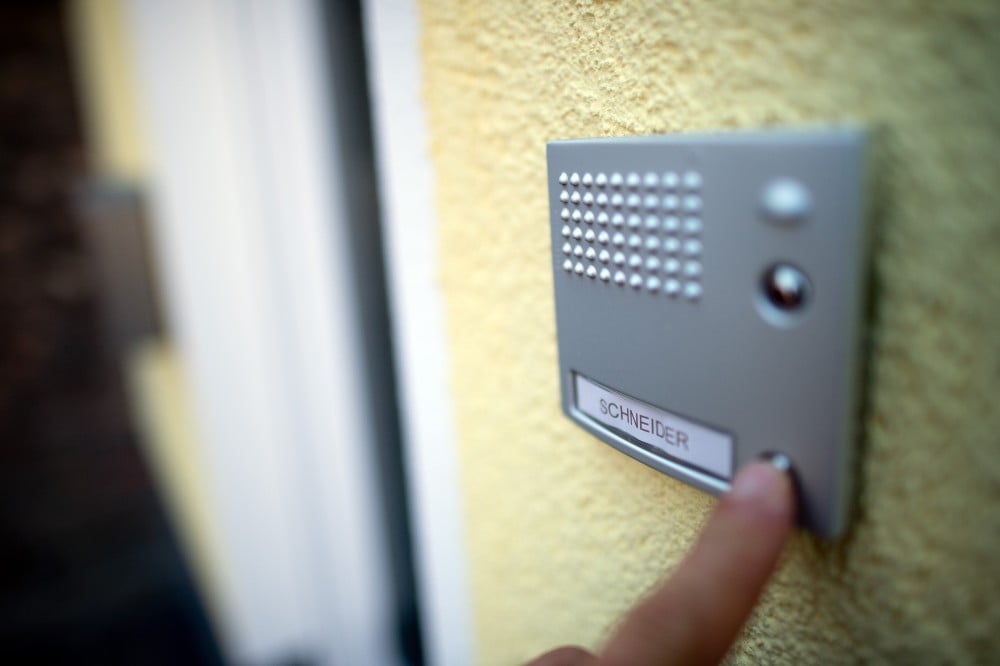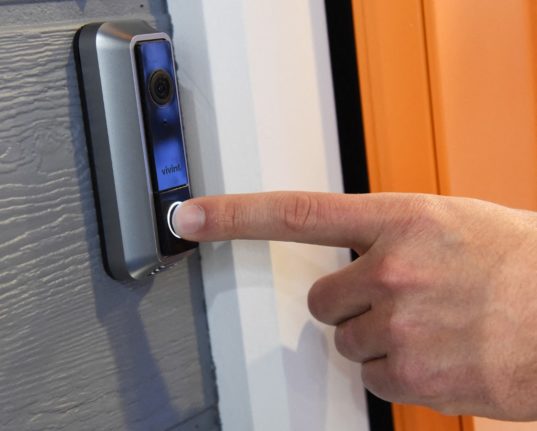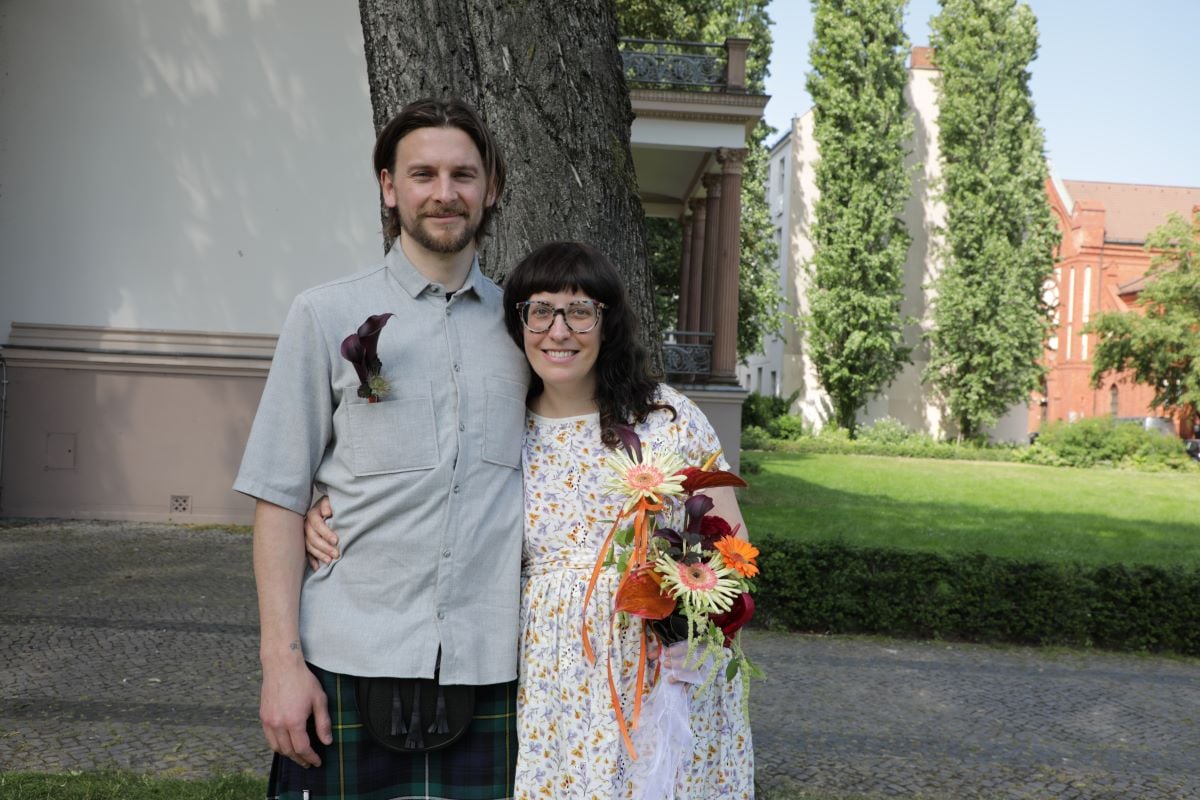In Germany, doorbell cameras fall under the purview of data protection law. The popular smart devices must comply with the European General Data Protection Regulation (GDPR) and the German Federal Data Protection Act.
Is it legal to record my home?
Yes, but there are limits. Property owners are allowed to install video surveillance outside their homes to secure their property. Still, German privacy laws require doorbell cameras to only monitor personal property. The camera cannot capture public roads or pavements.
If, despite taking precautions, someone is recorded without permission, you’re required to delete the footage immediately.
For apartment dwellers, protection of personal rights also applies. This means the smart cameras can only record the owner’s front door. It cannot capture the staircase and record the movement of others as they visit the apartment building.
That’s because Section 201 of the German Criminal Code prohibits taking video or photographs without consent. This makes the use of a doorbell camera nearly impossible for most flat dwellers.
Instead, flat owners can set up a camera in the private area that they alone use. If you’re worried about deterring potential burglars, you can post a sign that the property is under surveillance.
Landlords need the consent of all tenants living in the apartment building to install video intercom systems and cameras that capture outdoor areas and or hallways.
Tenants should be informed of where the cameras will be, what areas are covered, who has access to the recordings, when the camera is on and how long recordings are saved for. Written consent should also be obtained, in case of doubt there is proof of consent.

Who can be filmed?
If you employ anyone on your property – like a housekeeper, gardener, or tutor – you should obtain their written permission to film them. This will help prove consent in case there is doubt.
Still, covert video surveillance is generally not allowed. If you suspect someone employed in your household has stolen something, you must ensure your surveillance is proportional to the thing missing. In other words, it would not be appropriate to secretly film to track down a few missing apples. But short-term surveillance can be allowed if expensive valuables regularly go missing.
What should I consider before setting up my camera?
Prominent signage: All video surveillance that may capture public traffic should be clearly identified before someone enters the surveilled area. There is no one sign required to meet this expectation. Some state websites offer guidance and examples of signage that meets the guidelines.
Storage Times: According to Section 6b of Germany’s Federal Data Protection Act (BDSG), data “must be deleted immediately if they are no longer required.”
States can set expectations for when recordings should be deleted. However, a storage period of up to 72 hours is usually permissible, with extensions possible for legal reasons.
What happens if I break data protection laws?
If your neighbor believes that your camera is capturing them or their property, they can refer you to the state commissioner for data protection and freedom of information. Violating video recording laws under Section 201a is punishable by fine or imprisonment.




 Please whitelist us to continue reading.
Please whitelist us to continue reading.
Member comments